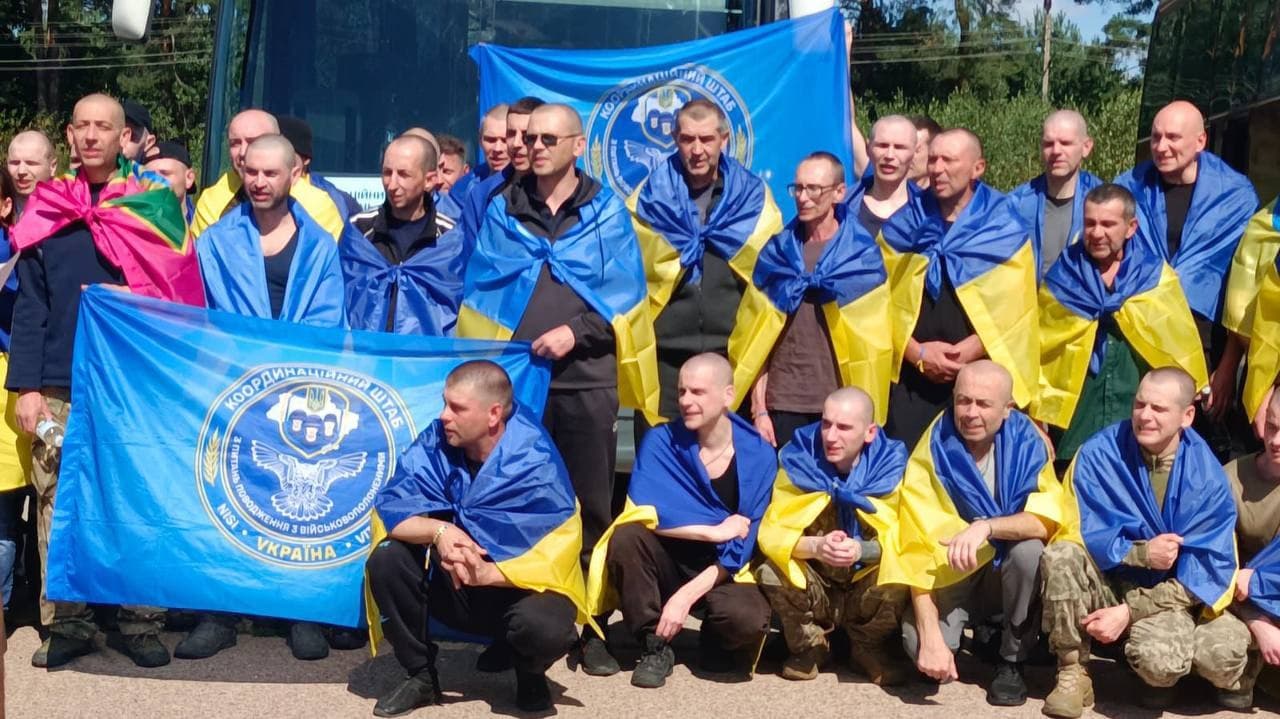84 Ukrainian Soldiers Released in Urgent Prisoner Exchange, Zelensky Confirms
In a significant development in the ongoing conflict between Russia and Ukraine, Ukrainian President Volodymyr Zelensky announced on Thursday that 84 Ukrainian soldiers have been successfully returned home as part of a prisoner exchange. This operation marks a critical moment in the ongoing efforts to address the humanitarian crisis stemming from the war, which has now entered its second year.
Background & Context
The war in Ukraine, which began in February 2022 following Russia"s invasion, has resulted in a devastating toll on both sides. Thousands of soldiers and civilians have been captured, injured, or killed, leading to widespread calls for humanitarian interventions and negotiations. Prisoner exchanges have become a common practice during the conflict, aimed at alleviating the suffering of families and providing some semblance of closure amidst the chaos.
This latest exchange highlights the ongoing complexities of the war, where both nations have engaged in a series of negotiations to secure the release of their personnel. The return of these 84 soldiers is not only a moment of relief for their families but also a reminder of the human cost associated with the conflict. As previously reported, recent developments in the region have seen both sides intensifying their military operations, making such exchanges critically important for maintaining morale.
Key Developments
President Zelensky confirmed the successful exchange during a press briefing, expressing gratitude toward all those involved in the negotiations. "Today, we celebrate the return of our brave soldiers," he stated. "Each of them fought valiantly for our freedom, and their safe return is a testament to our commitment to our servicemen and women." The exchange reportedly occurred at a designated neutral location, underscoring the delicate nature of such operations.
This operation comes on the heels of other significant military and diplomatic activities. For instance, UK Prime Minister Keir Starmer’s recent visit to Ukraine, where he pledged expanded support, illustrates the international backing Ukraine continues to receive. This support is critical as the country navigates the challenges of the ongoing conflict and the need to bolster its defenses against Russian advances.
Broader Impact
The release of the 84 soldiers is expected to have far-reaching implications for both morale and diplomatic relations. For Ukraine, this development serves as a powerful reminder of the nation’s resilience and the importance of solidarity among its citizens. Analysts suggest that such exchanges can also pave the way for future negotiations, although the path remains fraught with difficulty given the entrenched positions of both nations.
Experts in international relations note that these exchanges are not merely humanitarian gestures but also strategic moves within the larger context of the war. As Ukrainian forces continue to regain ground, such as in the recent efforts to stop Russian advances near Pokrovsk, each soldier returned home represents not only a victory for their families but also a boost to national morale. The psychological impact of these exchanges can be profound, reinforcing the narrative of resistance against foreign aggression.
What"s Next
Looking ahead, the situation remains fluid as both sides prepare for potential escalations in military engagements. The Ukrainian government is likely to pursue further exchanges in the coming weeks, as families continue to advocate for the return of their loved ones. With the war showing no signs of abating, the international community will be watching closely for any shifts in strategy from either side.
Additionally, as the Ukrainian military continues to push back against Russian forces, there are implications for ongoing diplomatic efforts. The recent prisoner exchange may serve as a catalyst for renewed negotiations, but it will require significant diplomatic maneuvering. As previously reported, the international landscape is also shifting, with key players like the UK reaffirming their commitment to Ukraine, suggesting that support for the country may continue to evolve in response to developments on the ground.


![[Video] Heavy clashes and gunfire reported in Baghdad, Iraq](/_next/image?url=%2Fapi%2Fimage%2Fthumbnails%2Fthumbnail-1768342239932-848qsh-thumbnail.jpg&w=3840&q=75)




![[Video] Gunfire between Iraqi security forces and Sadr militias in Baghdad](/_next/image?url=%2Fapi%2Fimage%2Fthumbnails%2Fthumbnail-1768343508874-4redb-thumbnail.jpg&w=3840&q=75)
